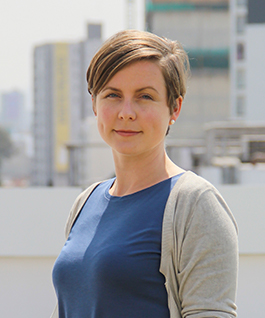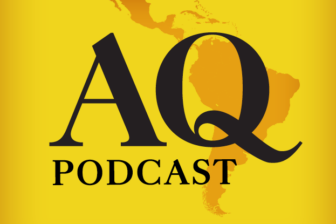LIMA – When President Iván Duque announced that Colombia would grant the approximately 1.7 million Venezuelan migrants and refugees in the country complementary protection and legal status for a decade, the international response was swift and positive. The United Nations High Commissioner for Refugees, Filippo Grandi, called the surprise Feb. 9 decision “historic” and said it was one of the region’s “most important humanitarian gestures” in decades. “This decision will save lives,” said former U.S. President Bill Clinton.
Neighboring governments should pay close attention. The move is both bold and remarkable, given that Colombia hosts the highest number of Venezuelan migrants in the world. It could set a precedent for leadership in neighboring countries where efforts to regularize Venezuelans have been uneven or are under threat. Colombia’s goodwill also offers an alternative to rising xenophobia, seen, for example, in recent legislation proposed in Peru, the militarization of borders between Ecuador, Peru and Chile, and the rhetoric from political figures and presidential candidates across the region.
Colombia’s openness to Venezuelans hails in part from a sense of reciprocity – many remember how other countries settled Colombians fleeing the violence of the 1980s and 90s. But its approach is also a pragmatic one: The government acknowledges that it cannot stop the inflow of its desperate neighbors. By registering all undocumented Venezuelans in the country, Colombia will increase its control in the interest of policy planning and national security, allowing substantial fiscal savings as well.
The Temporary Protective Status program will also free nearly a million Venezuelans who hold a confusing variety of temporary visas from regularly having to reapply for permissions – a bureaucratic mess that hasn’t stopped the flow of migrants into the country. This approach could be a template for other governments seeking to regularize Venezuelans living in their countries.
Of the approximately 5.4 million people who have fled violence, hyperinflation, political oppression, and food and medicine shortages in Venezuela, the lion’s share live in Colombia and across neighboring countries where governments have chosen ad hoc policy measures that initially regularized many, but left hundreds of thousands with no or only precarious legal status.
In Peru, for example, migration authorities have initiated a preregistration process for an upcoming regularization program, following a similar registration in Ecuador. The process intends to mitigate the negative effects of a series of prior short-term and thus unsustainable responses. However, the scope of this regularization remains somewhat unclear and some requirements, such as high fines for those who have been with irregular status for some time, will be difficult if not impossible to meet.
There’s also an economic argument for a robust regularization program, which in Peru, for example, could add some $3.2 billion in fiscal income, according to Paula Rossiasco, a senior expert on social policy at the World Bank. Venezuelan migrants, who are disproportionally more educated than locals, provide a boost to the economy if they are free to work legally.
Furthermore, Colombia’s plan could be a roadmap for securing funding from international partners who want to work with governments that are serious about protecting those fleeing Venezuela’s humanitarian, economic and political crises. Even before the pandemic, the Colombian government’s generous approach had been more successful than others in raising funds from international donors. In 2018 and 2019, Colombia, which hosts 37% of the Venezuelan migrants and refugees living in Latin America, attracted approximately 45% of the funds that the region received to help cover the costs of Venezuelan displacement.
Despite this, Venezuelan migration has become an increasingly politicized domestic policy issue in Ecuador, Peru, and Chile, leading to a shift towards restrictive policy reactions and de facto border closures for Venezuelans, even before COVID-19. In January, Peru sent military tanks to its border with Ecuador to stop the entry of Venezuelans, prompting concern from Amnesty International. Members of Peru’s congress have introduced a flurry of xenophobic bills, but none of these efforts have had the desired effect of halting the forced displacement of Venezuelans. They rather have pushed migrants and refugees towards more dangerous routes and into the arms of migrant smuggling and human trafficking rings. Chile, which recently passed a controversial new immigration law, recently deported a first group of migrants to Venezuela on a military plane – in the midst of the pandemic.
Unfortunately, the kind of political will seen in Colombia, is in short supply among neighbor governments, who are either preoccupied with winning elections, or trying to win the upper hand on the COVID-19 pandemic. According to a lawmaker from his party, Peru’s transitional President Francisco Sagasti is focusing on securing vaccinations, controlling the pandemic, protecting the economy and ensuring free elections, and he considers any significant decisions in the area of immigration governance as the responsibility and competence of the next government.
Ahead of the country’s presidential election on April 11, immigration and xenophobia have played a role in the media and in campaigns, and many candidates have promised decisive if not authoritarian measures against immigrants while fueling the myths that migrants have increased crime and are responsible for the spread of COVID-19 in their host communities. The man leading the polls, George Forsyth, although born in Venezuela himself to Chilean and Peruvian parents, spoke out against what he called “Venezuelan mafias” when he was mayor of a Lima municipality and has described Venezuelans as a threat during his campaign.
In Ecuador, leftist presidential hopeful Andrés Arauz, who won the first round of Ecuador’s presidential election with about 32% of the vote, was asked in a TV interview in December whether he would allow more Venezuelans to settle in Ecuador. “No, our priority is to serve the Ecuadorian people,” he responded. Arauz’s political mentor, former President Rafael Correa, refused to recognize Venezuela’s humanitarian crisis for political reasons. This rendered it politically impossible to recognize migrants as refugees or in need of special protection.
In Peru, it is still too early to make predictions about the election outcome. In either case, xenophobia and the increasing politicization of the topic, together with limited state capacity, will likely continue to challenge sustainable approaches to managing and successfully integrating Venezuelan migrants and refugees in years to come. But, as Colombia shows, another way forward is possible.








